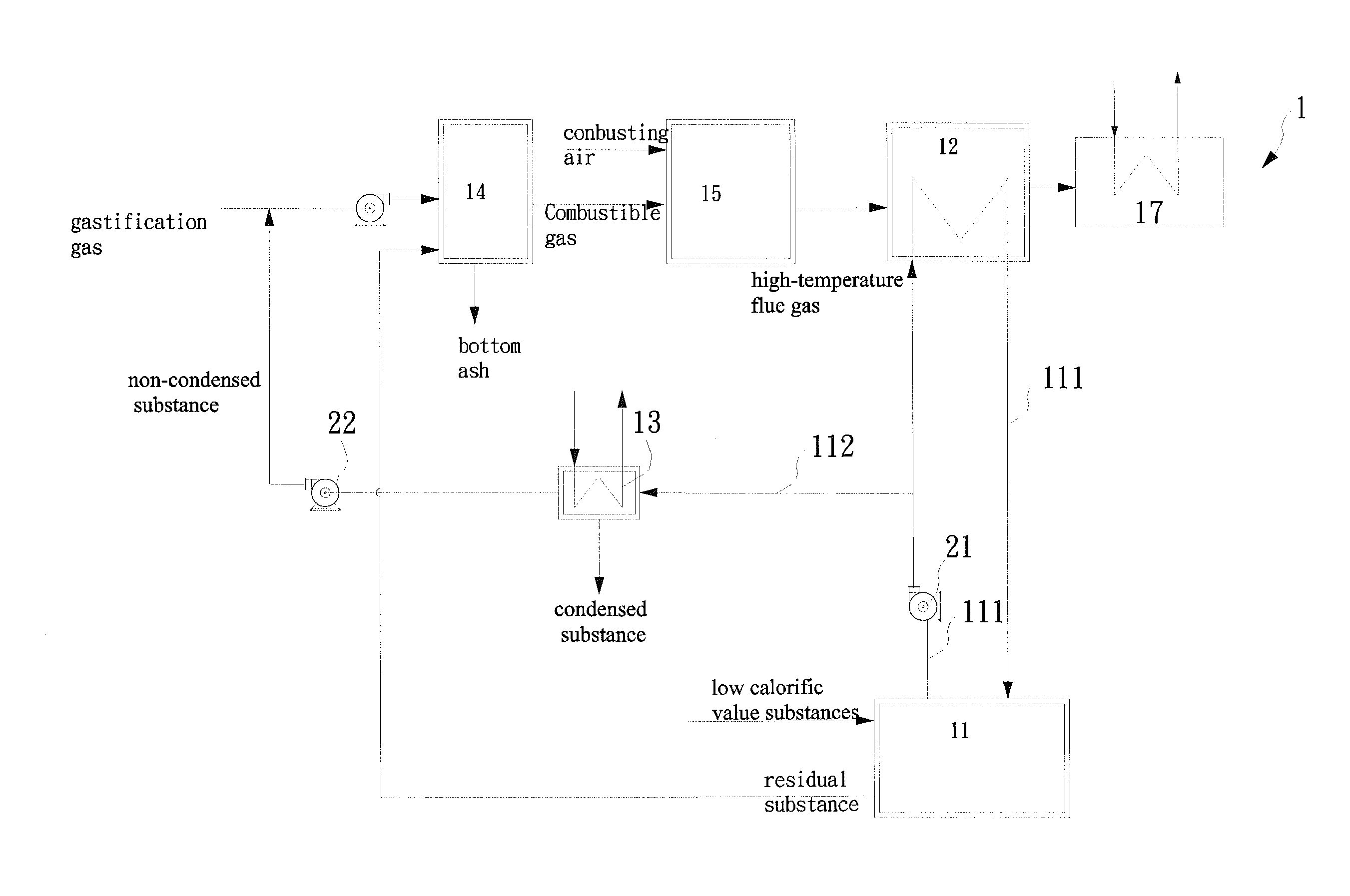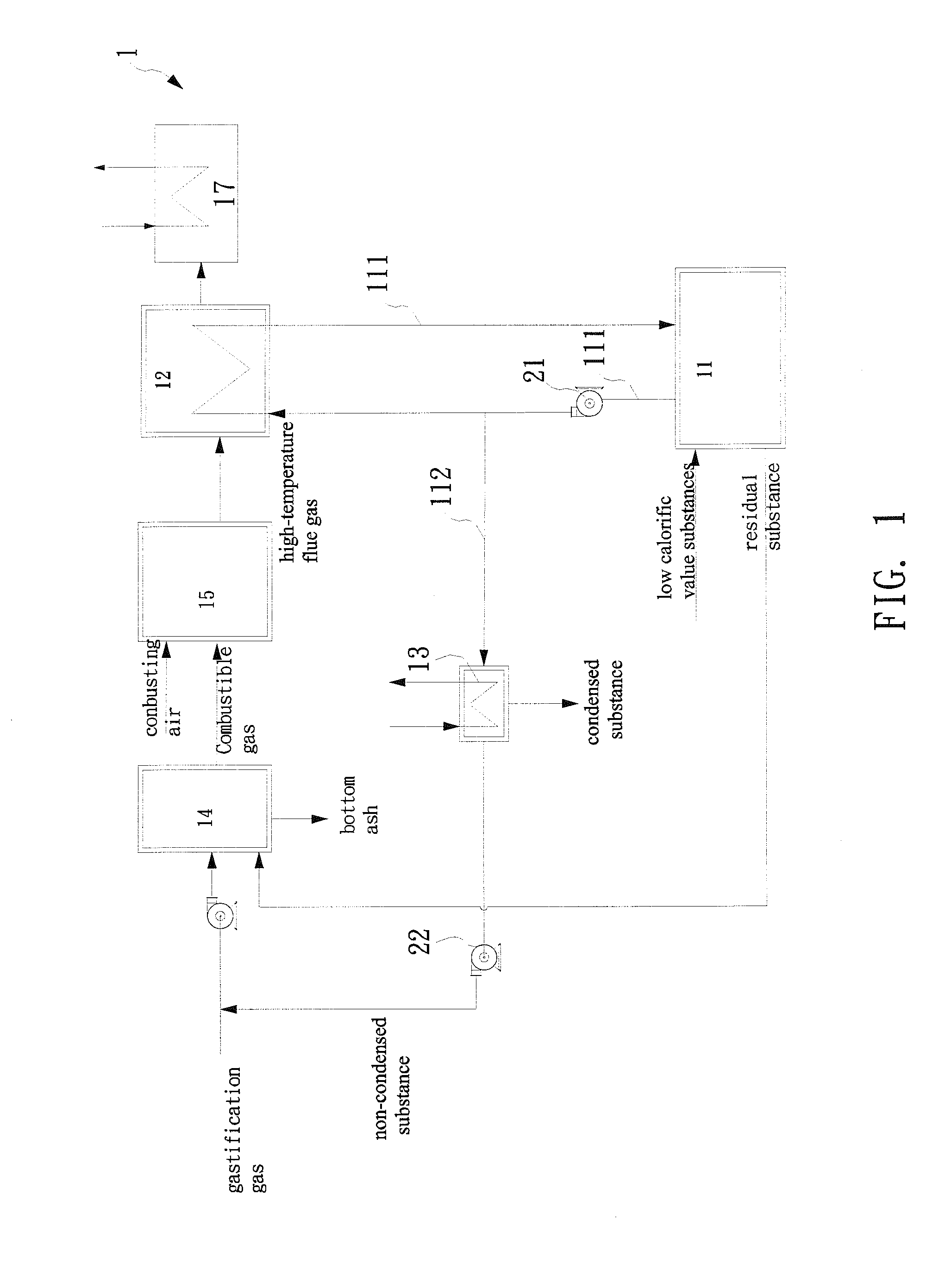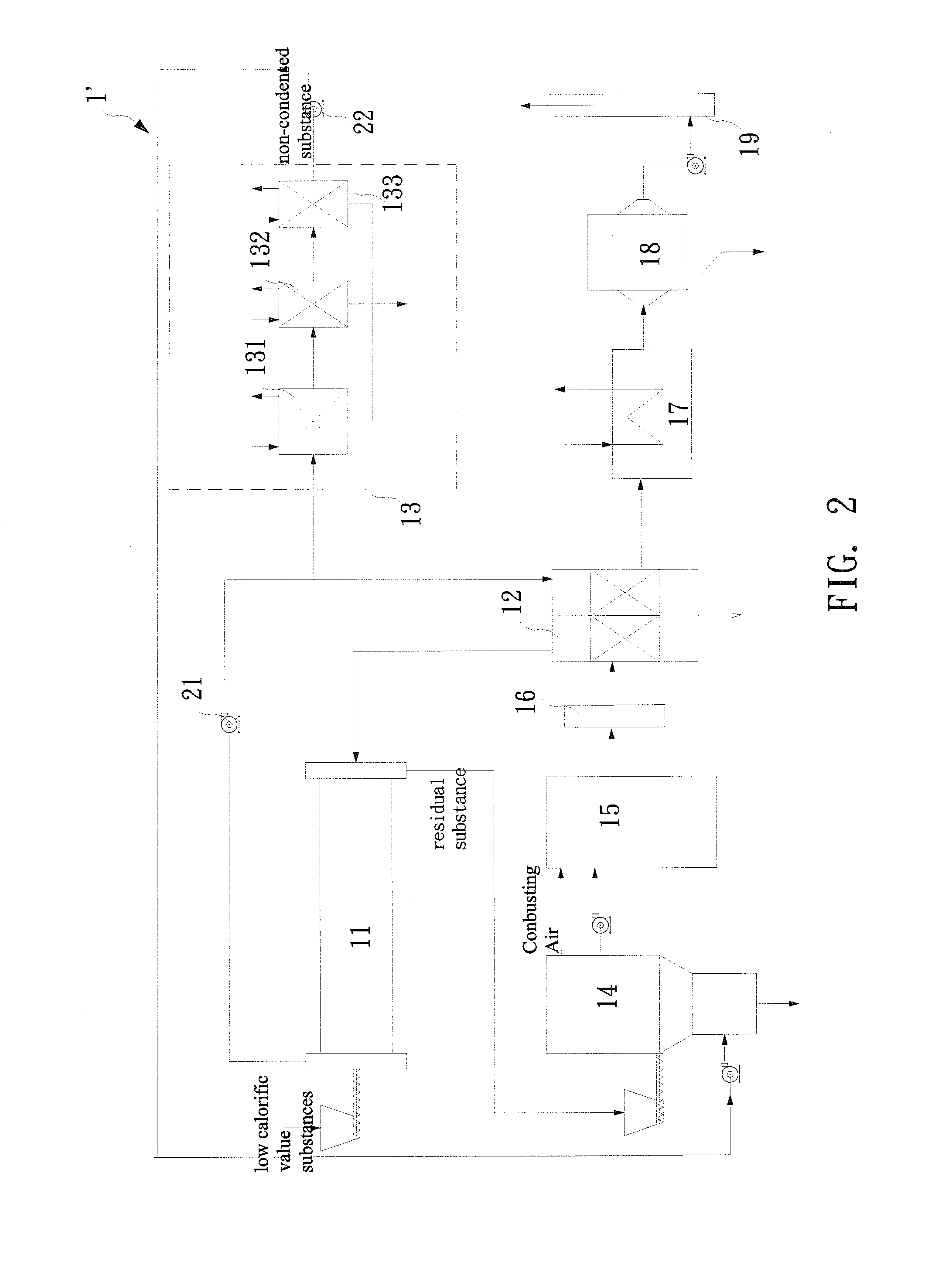System for substance separation and energy recovery by thermal treatment
a technology of energy recovery and substance separation, applied in the direction of sludge treatment by oxidation, furnaces, combustion types, etc., can solve the problems of difficult recovery of latent steam heat, incomplete combustion and air pollutants, and low combustion temperature and air pollutants
- Summary
- Abstract
- Description
- Claims
- Application Information
AI Technical Summary
Benefits of technology
Problems solved by technology
Method used
Image
Examples
Embodiment Construction
[0016]In order to give the examiners a better understanding of the technical scheme of the present invention, a preferred embodiment is illustrated as below.
[0017]Please refer to FIG. 1; the substance separation and energy recovery system 1 of the present invention includes a thermal treatment reactor 11, a circulation piping 111, a heat exchanger 12, a discharge piping 112, a latent heat recovering device 13, a gasifier 14, and a combustion furnace 15.
[0018]First of all, the low calorific value substance is fed into the thermal treatment reactor 11. The low calorific value substance can be, such as sludge, of which the moisture content is as high as 60-80%, with a better level of humidity being 60%. The thermal treatment reactor 11 (for example, a rotary drum dryer) is used for thermal treatment such as drying, pyrolysis, or torrefaction of the low calorific value material. In the embodiment of sludge, the thermal treatment is drying. The following description uses sludge as an exa...
PUM
 Login to View More
Login to View More Abstract
Description
Claims
Application Information
 Login to View More
Login to View More - R&D
- Intellectual Property
- Life Sciences
- Materials
- Tech Scout
- Unparalleled Data Quality
- Higher Quality Content
- 60% Fewer Hallucinations
Browse by: Latest US Patents, China's latest patents, Technical Efficacy Thesaurus, Application Domain, Technology Topic, Popular Technical Reports.
© 2025 PatSnap. All rights reserved.Legal|Privacy policy|Modern Slavery Act Transparency Statement|Sitemap|About US| Contact US: help@patsnap.com



